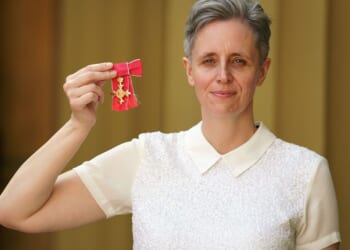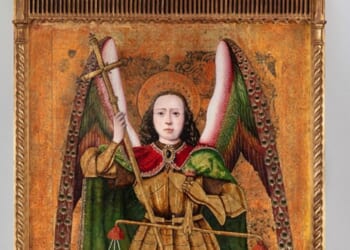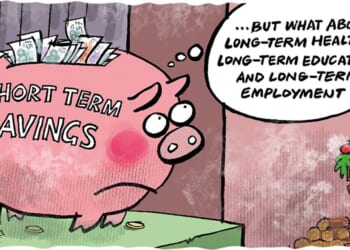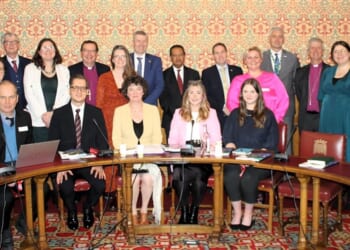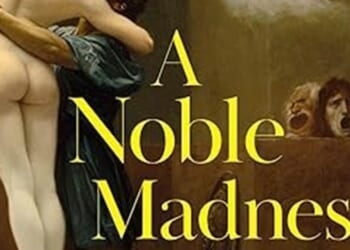Sounds of silence
SOMETHING strange is happening here in Suffolk; but it is the same strange thing as has been reported nationwide. Out of the blue, young men have been turning up at church, wanting to find out more about the claims of Christianity. Some of them seem quite baffled to be there: one I spoke to after a service seemed unsure of exactly what had just happened. “I was walking past,” he said, “and I suddenly thought I’d better walk in.” Another put his head round the church door on a Sunday while his wife was shopping, sat down for the sermon, and hasn’t missed a week since.
Apart from a few childhood visits, and one half-remembered Alpha course, there is no church experience in the backgrounds of our ten or so new congregants; but many of them have been led to investigate Christianity online, not by Christian influencers, but by the likes of Jordan Peterson and Tom Holland. They share a growing discontent with the liberal progressive ideas of their generation, but a recognition that voices from the opposite side can lack love and purpose.
We have run out of our stockpiled copies of the Prayer Book, which has become a popular resource among this group (I knew they would come in useful one day), along with every spare Bible in the house (and vicarages are generally full of those). The Vicar has been spending a large amount of time in coffee shops (not too unusual) and rugby clubs (very unusual). This phenomenon has become known as the “quiet revival”, but, when the new men’s ministry group invades the downstairs of the vicarage for pizza night, I’m not so sure about the “quiet” part.
Back to front
ATTENDING the Cambridge Alumni Festival, I signed up for a tour of manuscripts in the Fitzwilliam Museum’s library, and spent a delightful hour perusing medieval illuminations and poetical first drafts.
Two exhibits stood out. A section of Handel’s manuscript notation, containing some of the earliest fragments of Messiah, also included the street song of a match-seller from St Giles’s. It has a catchy, three-beat dotted rhythm across four notes: “Buy any matches? My matches buy!” It reminded me of the very similar chant of a Cambridge Big Issue seller who used to stand outside my college. I still find myself humming that one from time to time. Did the composer scribble the match-seller’s jingle down as potential inspiration, or just because it was stuck in his head and getting in the way?
My other favourite was a pocket notebook that had belonged to Isaac Newton. In the front, his notes on optics include equations, proofs, and diagrams. In the back, and upside down, are lists of expenses, laundry, shopping, and personal notes: at one point, he confesses, in code, to “robbing my mother’s box of plums and sugar”.
These manuscripts mimic the human mind. We have a front-of-notebook brain, where we keep our presentable, neatly drawn diagrams and predictable equations, and a back-of-notebook brain, all earworms and plum-stealing. There are times when I need to be better at working out which one of them is doing the talking.
Missing in action
I MET the prizewinning poet Hollie McNish, unexpectedly, in the lobby of the theatre where we were both in the audience for Harry Baker’s latest poetry tour, and queuing to have a book signed by him. I instantly made a fool of myself by squeaking “You’re Hollie McNish!” and then, not wanting to move out of the queue, explaining to my teenage daughter why I was so excited — while McNish watched.
I said that McNish’s poems about her own daughter, born at about the same time as mine, had supported me through the early years of motherhood (besides winning her the Ted Hughes Award for New Work in Poetry). I even, to my eternal embarrassment, attempted to quote some half-remembered lines — it was a very long queue. McNish was sweetly appreciative, but would probably rather have done without the interruption to her quiet evening.
Later, my daughter (who has never understood my passionate admiration of other authors and poets) asked me, “Was your meeting Hollie McNish a bit like if I met Billie Eilish?” I said, “It was as if you went to a Taylor Swift concert, and then bumped into Billie Eilish in the lobby.”
McNish pointed out recently on Instagram that almost one quarter of women aged 18 to 24 voted Green last July — roughly double the number of young men who voted Reform, but the media seem interested only in the political movements of the men. While young men express their discontent on marches and in protests, she claims, women are channelling their own anger, sadness, and need for community into volunteering and supporting grass-roots organisations in the areas where they see a need for change.
It made me wonder in which direction women are moving with regard to the Church — or whether they have already moved, unnoticed. I remember my student days with the churchgoing group, girls outnumbering the marriageable men by five to one. While everybody is excited about the quiet revival, what are young women much more quietly doing — and where are they ending up?
Divine inadvertence
ONE of the joys of my work over the past year has been editing First In Line, a memoir by the first female archdeacon in the Church of England, the Ven. Judith Rose.
Archdeacon Rose, who left an early career in agriculture to go into ministry at a time well before the ordination of women was even on the horizon, kept finding herself in roles slightly before anybody was sure that a woman was allowed to do them: as well as archdeacon, she was the first female rural dean, and a bishop’s chaplain. When she became archdeacon, her title was initially “acting archdeacon” while she waited for the Church to catch up and make the appointment lawful. “I never set out to be a pioneer or a trailblazer,” she begins, “but things just sort of happened to me as the second half of my life progressed.”
While working on the book together, I discovered that, serendipitously, we had in fact crossed paths twice before, without knowing. She had been my archdeacon (of Tonbridge) while I was at school in Sevenoaks; but, before that, on the momentous day the General Synod voted on women’s ordination to the priesthood, she had been inside the chamber, while I, aged ten, was outside in the crowd. Living in Westminster meant that my father often took me to places where historic decisions were being made.
Archdeacon Rose began her last speech in the Synod with the words “When I am an old woman, I will not wear purple” — misquoting the famous poem to open a discussion about the distant possibility of women bishops. It could not be more appropriate that her memoir has been published in the same year as we have appointed our first female Archbishop of Canterbury.
Amy Scott Robinson is an author, editor, performance storyteller, and ventriloquist.












